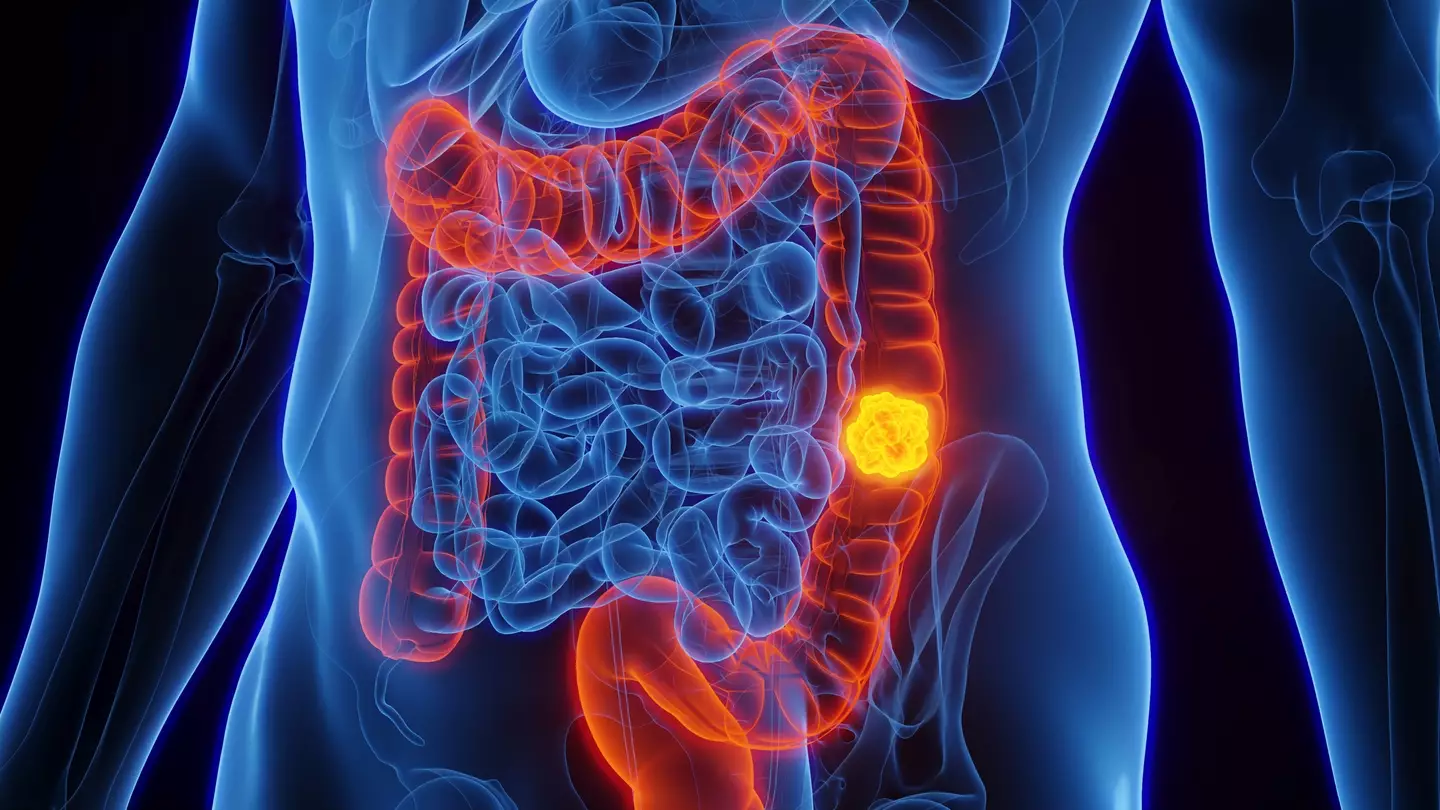
Ever since the 1990s, cases of cancer found within the bowels, colon or rectum have been gradually increasing, particularly in young people.
Indeed, in the US, 20 percent of colorectal cancer cases reported in 2019 were found to be in citizens below 50 years of age.
One of the main issues doctors find with this particular form of cancer is that it can prove particularly difficult to diagnose, as most symptoms fly under the radar - something that has earnt it the nickname of the 'silent killer'.
According to the NHS, the most obvious indication that something sinister may be going on within the lower intestine, colon or rectum is a change to a person's stools.
Advert
This could refer to the shape or consistency of each bowel movement, or how often/how urgent the feeling of needing to use the bathroom for number two becomes.
Masses of dark red blood found in your excrement could also be a sign of bowel cancer, as could severe pain in the abdominal area.
There are several other more low-key symptoms of the disease, which often go unnoticed as they can be signs of other, more common ailments.
These can include:
- Feeling a lump in your stomach
- Bloating
- Losing weight without attempting to
- Feeling fatigued
But while the symptoms may be fairly well documented, there may be other aspects that you're not considering.
Advert

With that in mind, the health experts from Vanswe Fitness have pulled together of five important questions you should ask your doctor – all of which are points you may not have thought to ask, and all of which could potentially be life-saving.
“Based on my family history and personal risk factors, should I start colon cancer screening earlier than the standard age?”
According to Vanswe, tailored screening is crucial for anyone who has a family history of cancer or other notable risk factors, which is something you should consider when speaking to your doctor.
Advert
With rising rates of early-onset colon cancer and advanced-stage diagnoses among younger people, it's vital that you understand how your specific personal risk levels may warrant starting the screening process sooner than other people might.
“What are the most effective and accessible screening options for someone like me?”
Colonoscopies are a common test to check inside your bowels, but they aren't always accessible for younger patients - especially if one needs to be performed before the recommended age, with screening currently offered to Brits aged 54 to 75 every two years.
But you can also ask about other screening methods that better suit your situation, such as stool-based tests or others that can be performed at home like a virtual colonoscopy.
Advert

“What symptoms should I look out for, and how can I tell if they might indicate colon cancer?”
It's important to be as clued-up about symptoms as you can be, as early symptoms can easily be mistaken for less serious issues, or so subtle that you don't notice them.
Common warning signs include abdominal pain, rectal bleeding, diarrhoea and signs of iron deficiency.
“How do lifestyle factors such as diet, exercise, and body weight affect my colon cancer risk?”
This is another key area, as the sedentary habits and dietary changes associated with modern lifestyles are thought to be contributing to the rising number of cases.
Advert
Introducing dietary changes, exercise and weight management strategies may help as preventative measures, while also helping you understand your risk.
“What distinguishes early-onset colon cancer from the cases typically seen in older adults, and what does this mean for my health?”
The cases on the rise among younger people are also often diagnosed at a later stage, with many young patients given a diagnosis when the disease is advanced.
Men, meanwhile, have a higher incident rate than women.
While these details may seem scary, knowing how different groups of people have different risk levels is important, as it not only prompts risk management tailored to the individual, but also proactive screening.
Topics: Health, Cancer, Bowel cancer